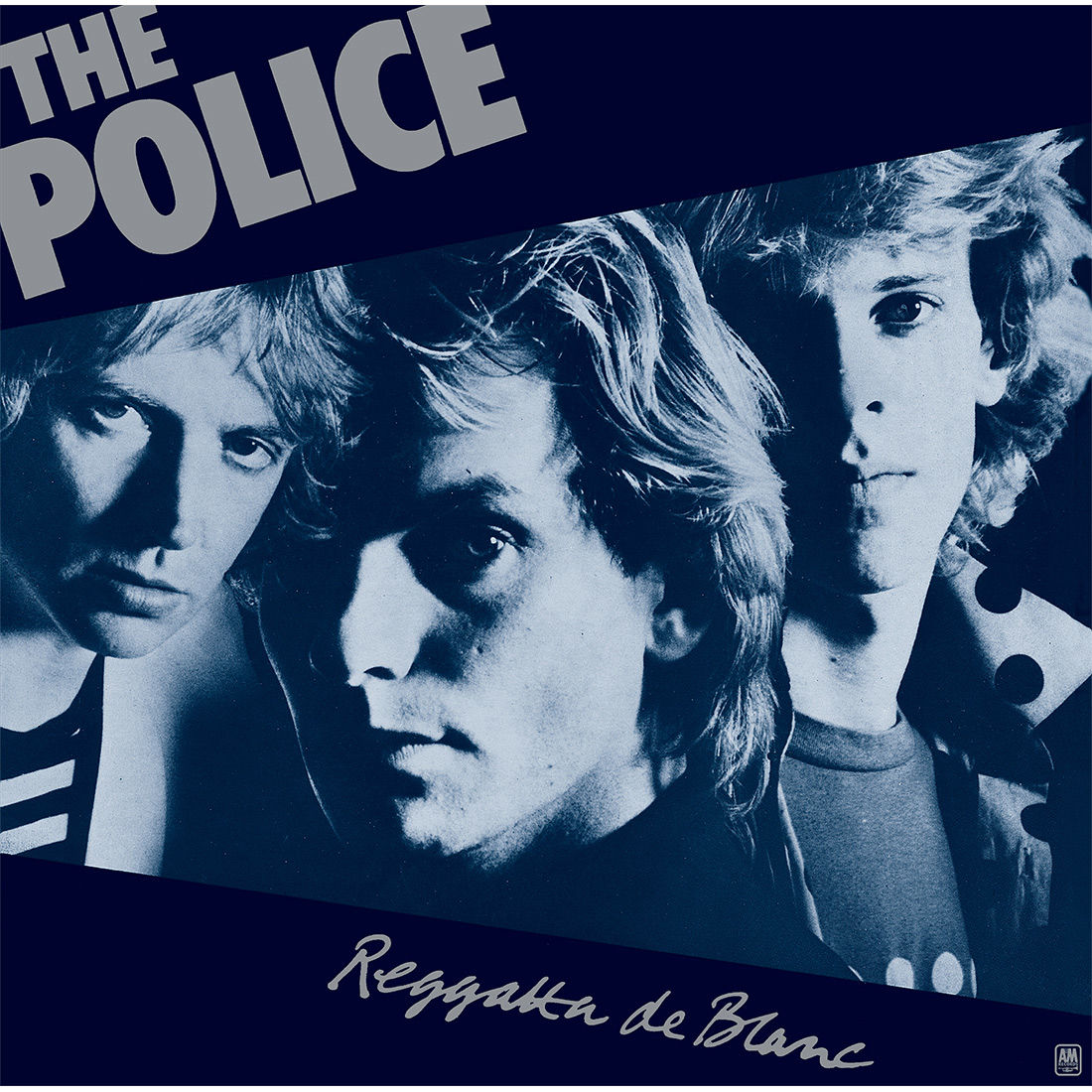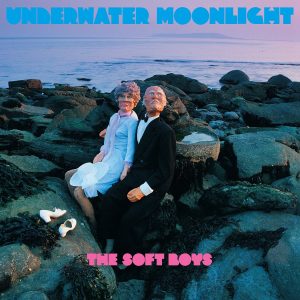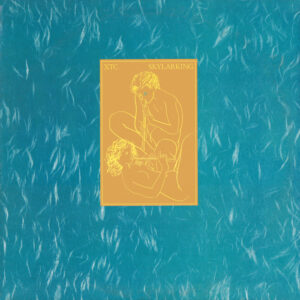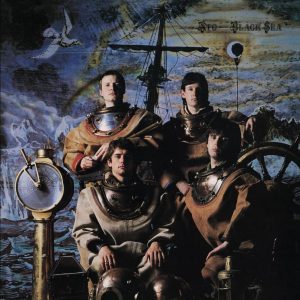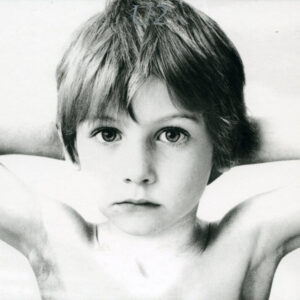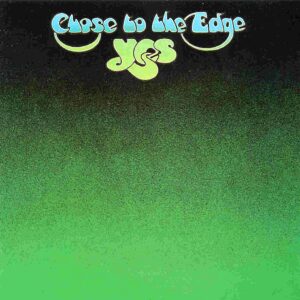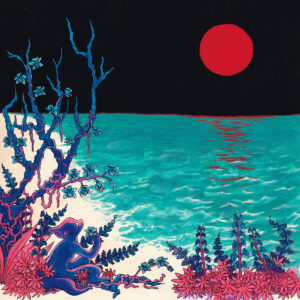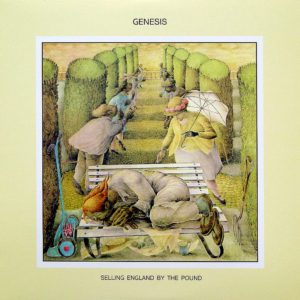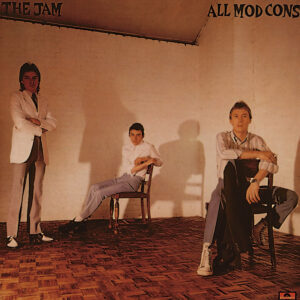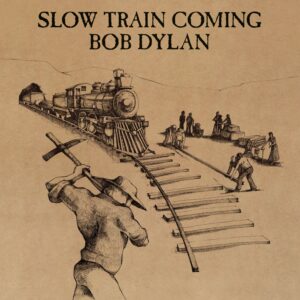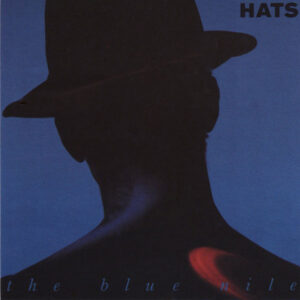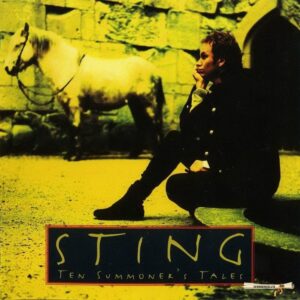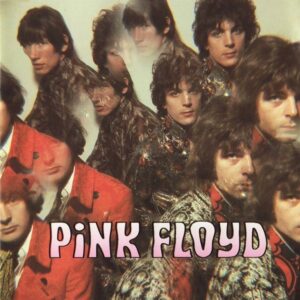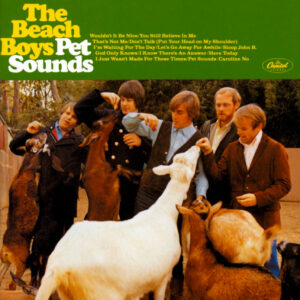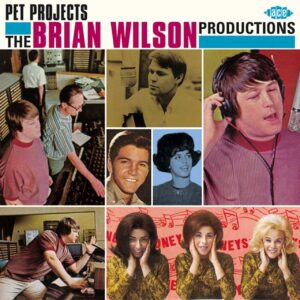
English trio The Police released their first album in 1978. Despite the timing, they weren’t especially punk, something that’s immediately apparent from their choice of band name. The Police were already music industry veterans when they formed – guitarist Andy Summers was already in his mid-30s and had played with The Animals in the 1960s. American-born drummer Stewart Copeland was a former member of the progressive rock band Curved Air, while bassist and vocalist Sting had played with jazz fusion group Last Exit.
The Police looked punk – their bleached hair came from filming a never-used Wrigleys’ commercial. But the angsty new wave of their early hits sounds contrived, and they became more interesting as they expanded into reggae and pop. Copeland is one of my favourite rock drummers, and his cymbal work is astounding, while Summers’ guitar playing is always unconventional and fascinating.
The Police built their career over five albums – by 1983’s Synchronicity, and its massive single ‘Every Breath You Take’, they were arguably the biggest band in the world. The band went on hiatus while Sting recorded his solo debut The Dream of the Blue Turtles, and Copeland broke his collarbone on the eve of rehearsals for a sixth album. The band never recorded another studio album, although they have played live together, including a world tour in 2007-2008.
The Police are arguably the best singles band of their era, but their albums are all mildly disappointing. Their one album-per-year schedule seemingly didn’t allow Sting enough time to write material, and their albums are all padded out with gimmicks, filler, and material from Copeland and Summers. Both supporting members have their moments, especially Copeland on Reggatta de Blanc, but Sting was clearly the band’s key writer. Their 1992 Greatest Hits is amazingly good, and makes their studio albums look ragged in comparison, but it’s worth digging through their albums for more treasure.
The Police Album Reviews
Outlandos d’Amour | Reggatta de Blanc | Zenyatta Mondatta | Ghost in the Machine | Synchronicity | Greatest Hits | Flexible Strategies
Outlandos d’Amour
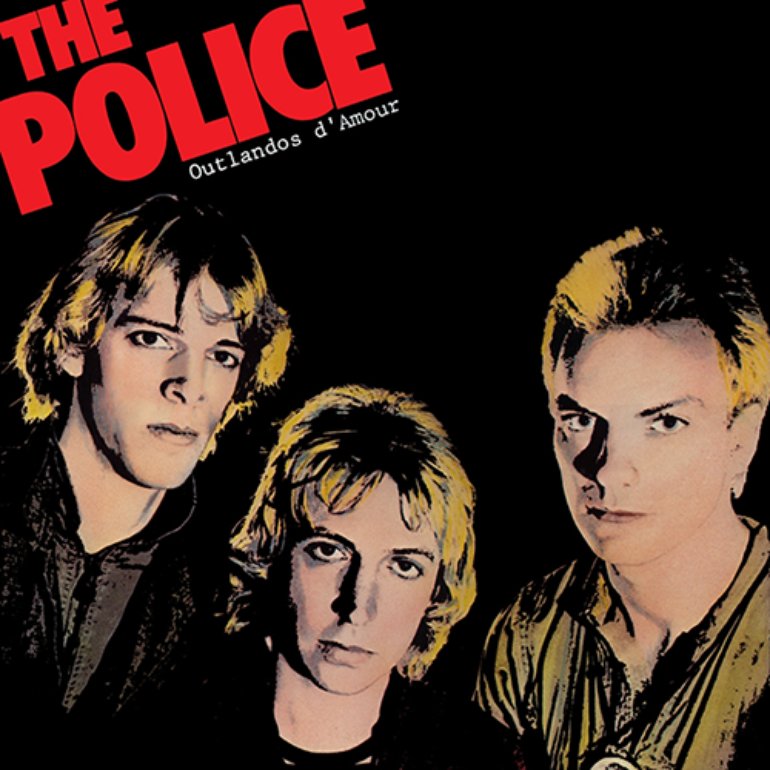
1978, 7/10
The Police’s first album is their most straightforward – punk-tinged songs like ‘Next To You’ and ‘I Can’t Stand Losing You’ make sense in the musical landscape of 1978. At the same time, it makes Outlandos d’Amour difficult to buy into – experienced musicians pretending to be punk to get a record deal. The Police can’t always maintain the facade – opener ‘Next To You’ features a slide guitar solo from Summers that doesn’t belong on a punk record – and the straightforward arrangements feel like a waste of the instrumentalists’ considerable talents.
Outlandos d’Amour is most interesting when The Police dabble with different rhythms – Copeland plays a tango beat on ‘Roxanne’, while standout ‘So Lonely’ was inspired by Bob Marley’s ‘No Woman, No Cry’, alternating driving punk with laid-back reggae rhythms. The album’s other single, ‘I Can’t Stand Losing You’, is noteworthy for dark humour from Sting, with lines like “your brother’s gonna kill me and he’s six feet ten“. ‘Peanuts’ is a denunciation of the lifestyle choices of Rod Stewart, Sting would later backtrack on the comments and collaborate with Stewart on 1994 single ‘All For Love’. There’s also filler like ‘Be My Girl/Sally’, featuring a poem by Summers about a blow-up doll.
Outlandos d’Amour lacks the sophistication of The Police’s later work; despite some solid material from Sting, it largely feels like a charade.
Reggatta de Blanc
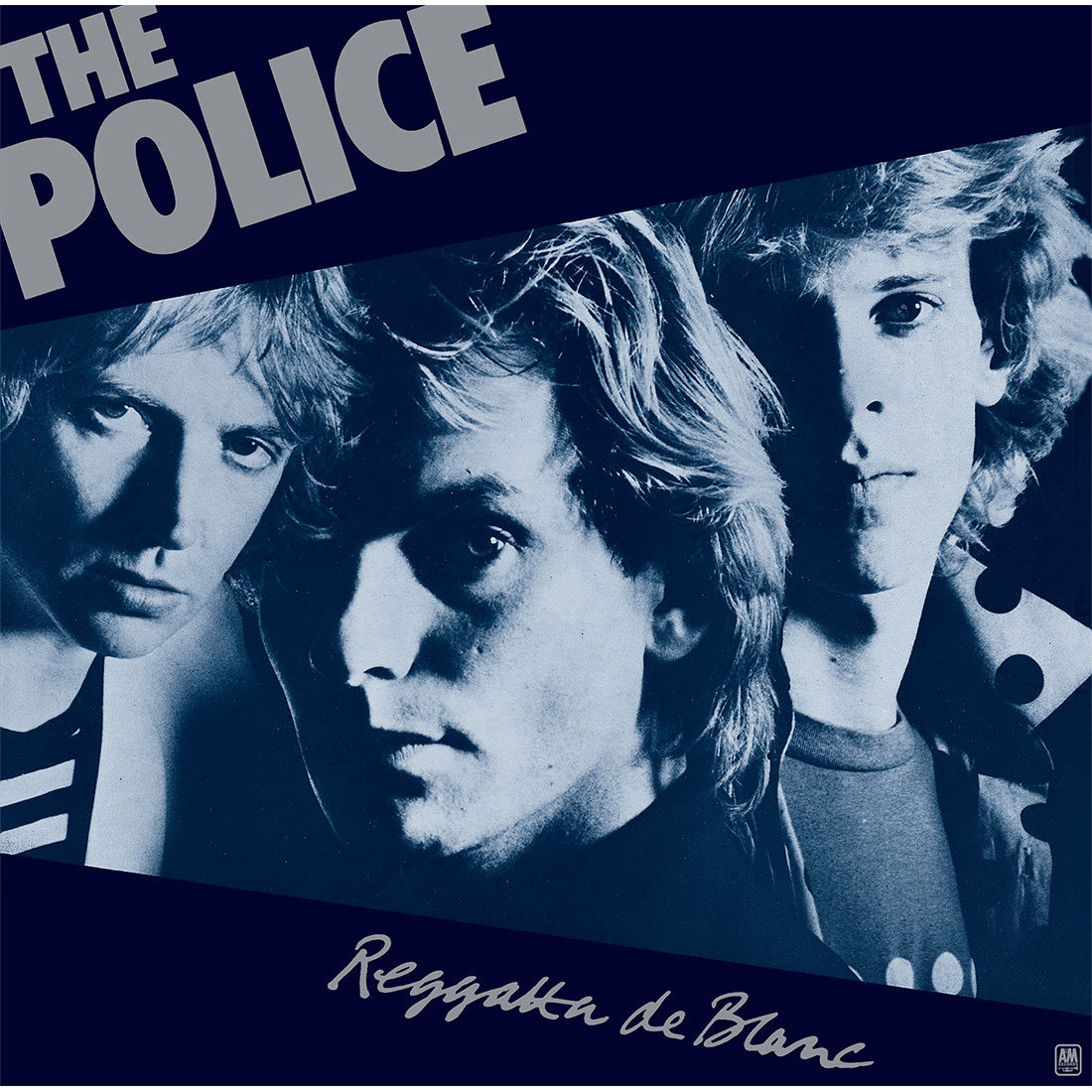
1979, 8.5/10
The Police dropped any pretence of punk for their second album, instead settling into their reggae-pop groove. Sting was very short of material and the group had to scramble for songs; Stewart Copeland is more involved than on any other Police album, with writing credits on more than half the songs. The group pulled material from everywhere – the instrumental title track was developed from onstage jams during ‘Can’t Stand Losing You’, the closing ‘No Time, This Time’ was a b-side for ‘So Lonely’, while ‘Does Everyone Stare’ is based on a piano piece that Copeland wrote at college. Several of the pieces are also recycled from Last Exit songs, including the single ‘The Bed’s Too Big Without You’.
Despite the patchwork nature, Reggatta de Blanc hangs together as The Police’s best album. A UK number one single from Sting leads off each side; ‘Message in a Bottle’ rides a terrific Andy Summers guitar riff, while the spartan reggae of ‘Walking on the Moon’ is based around Sting’s simple bass line. The latter was originally written by a drunk Sting in a hotel, with the original lyrics about “walking round the room”. The blockbuster singles overshadow the rest of the album, but everything’s enjoyable, especially the driving Sting/Copeland co-write ‘It’s Alright For You’. ‘Bring on the Night’, was written about Pontius Pilate, taking lyrics from the Ted Hughes poem ‘King of Carrion’.
It’s a hodgepodge, but Reggatta de Blanc is The Police’s best album, successfully padding out the two hit singles with enjoyable material.
Zenyatta Mondatta
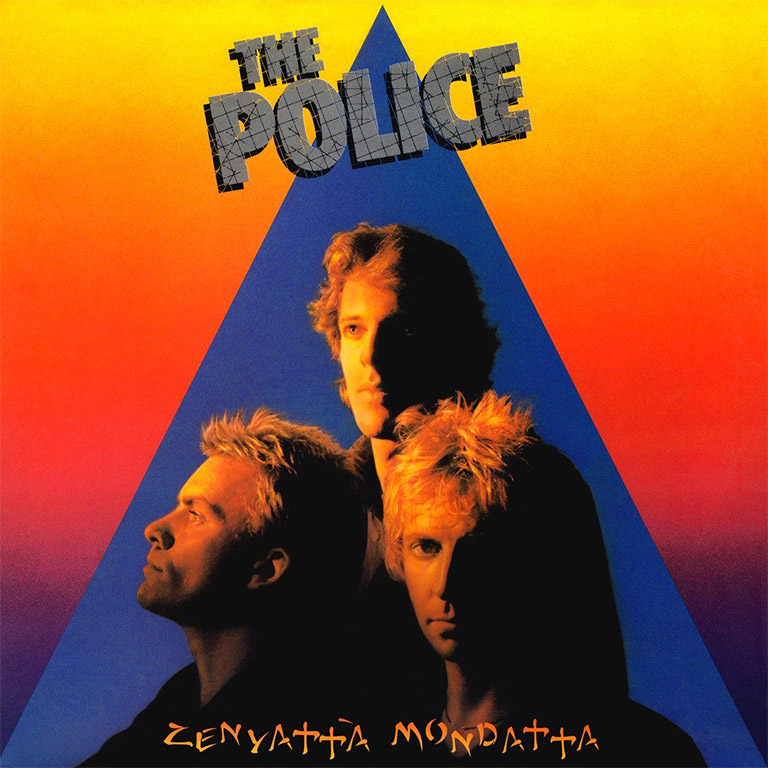
1980, 7.5/10
Zenyatta Mondatta is the last Police album to feature the band’s three-piece arrangements, centred around guitar, drums, and bass. Like Reggatta de Blanc, the album’s creation was rushed. The band wrapped up the recording sessions at 4am before heading out on a world tour a few hours later. Zenyatta Mondatta features a lot of good Police songs, but few great ones and the lack of stylistic variety makes the tracks blend together. There’s more focus on groove than previously, with songs like ‘When the World Is Running Down, You Make the Best of What’s Still Around’ and ‘Driven To Tears’based around Copeland and Sting’s rhythm section.
The two big singles lead off each side; early signs of Sting’s pretension appear on ‘Don’t Stand So Close To Me’ where he rhymes “shake and cough” with “Nabakov”, while ‘De Do Do Do, De Da Da Da’ explores the infantilization of pop lyrics, with listeners missing the point and including the song with the tracks it was criticising. Summers’ ‘Behind My Camel’ won the band their second consecutive best rock instrumental Grammy. The band members later revisited some of these tracks – ‘Shadows in the Rain’ was also featured on Sting’s solo debut, while an updated version of ‘Don’t Stand So Close To Me’ was included on a 1986 Police compilation.
There’s a lot of enjoyable second-tier material on Zenyatta Mondatta, but not much of the album is among The Police’s best work.
Ghost In The Machine
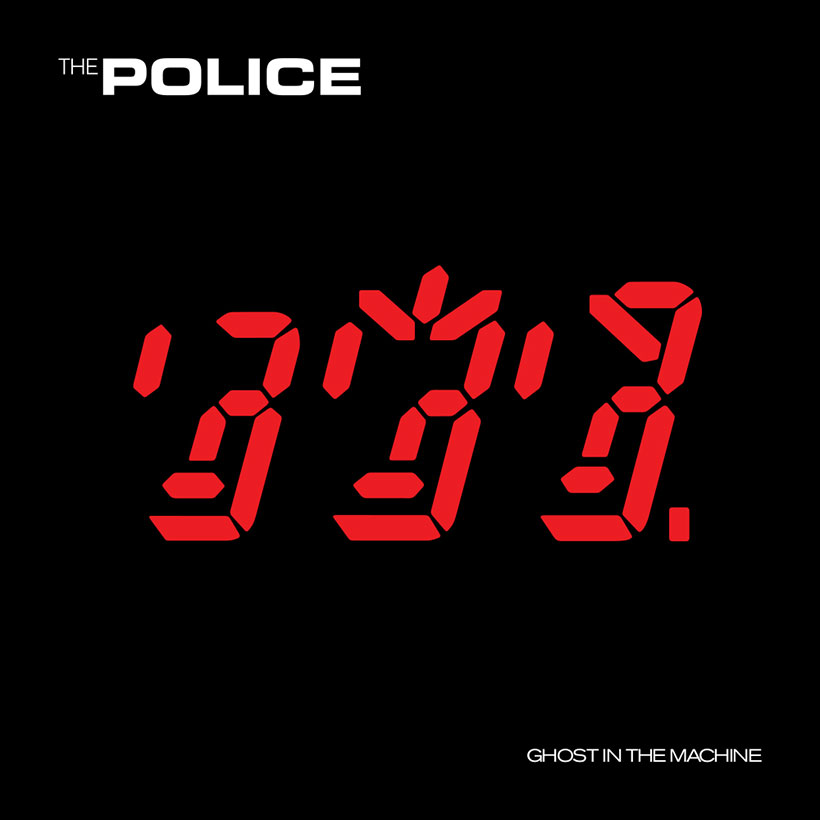
1981, 7/10
The Police expanded their sound palette on Ghost in the Machine, augmenting the core band with synths and horns. As a result, it’s dated less gracefully than their other records. In hindsight, Ghost in the Machine is a transitional step to the adult-pop sophistication of Synchronicity.
A&M planned to release the Summers-penned ‘Omegaman’ as the album’s first single – it would have been a rare Police single not written by Sting. Sting vetoed its release. Instead, it’s a buried gem, Summers’ best Police song with a killer riff. Characteristically, the singles are strong anyway – ‘Every Little Thing She Does Is Magic’ features pianist Jean Alain Roussel, while ‘Invisible Sun’ was written about hunger strikes in Belfast. The last two tracks, ‘Secret Journey’ and Copeland’s ‘Darkness’ suggest interesting possibilities into foreboding pop, but feel underdeveloped.
Ghost in the Machine hints at interesting new horizons for The Police, but it’s not as well realised as Synchronicity.
Synchronicity
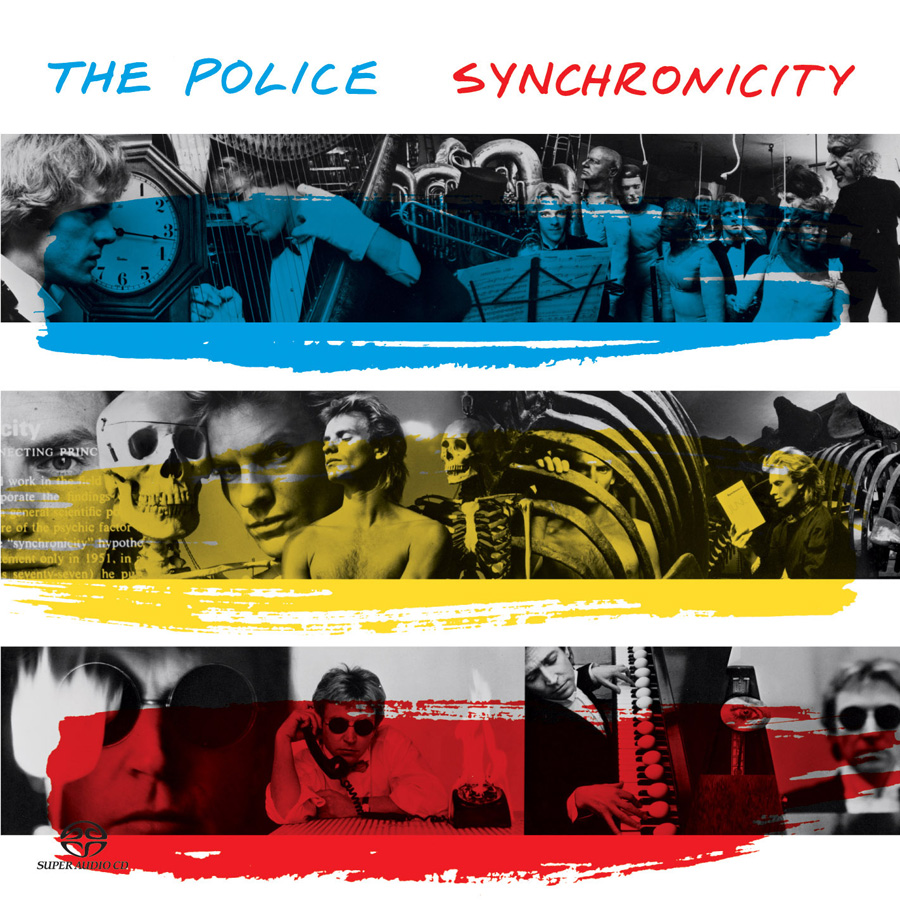
1983, 8/10
The Police’s final studio album is sometimes referred to as Sting-chronicity by fans. The band’s virtuoso interplay is largely subsumed by slow, synth-driven songs that place the focus on Sting’s writing and vocals. The band members recorded in three separate rooms – according to producer Hugh Padgham, partially for “social reasons”. Sting’s lyrics are largely inspired by Arthur Koestler’s The Roots of Coincidence, most obviously on the two parts of the title track.
Compounding the impression that Sting dominates Synchronicity, the two songs from the other members are out of place. Summers’ ‘Mother’ is creative, reminiscent of 1980s King Crimson with its 7/4 time signature, but Summers’ histrionic vocals are rough. Copeland’s perky and tuneful ‘Miss Gradenko’ is better, but an awkward fit.
Sting gets the second side of Synchronicity to himself, and it’s The Police’s best album side. The mega-hit was the stalkerish ‘Every Breath You Take’, with Summers’ pulsing guitar work. There’s also the rock of ‘Synchronicity II’ and the unsettling ambiguity of ‘Tea in the Sahara’, but my favourite is ‘King of Pain’, where Sting employs a series of woe-is-me metaphors without overstepping into pretence and Summers plays one of his best Police solos.
Synchronicity was a huge seller, but with Sting taking more of the spotlight, a solo career was inevitable.
Greatest Hits – The Police
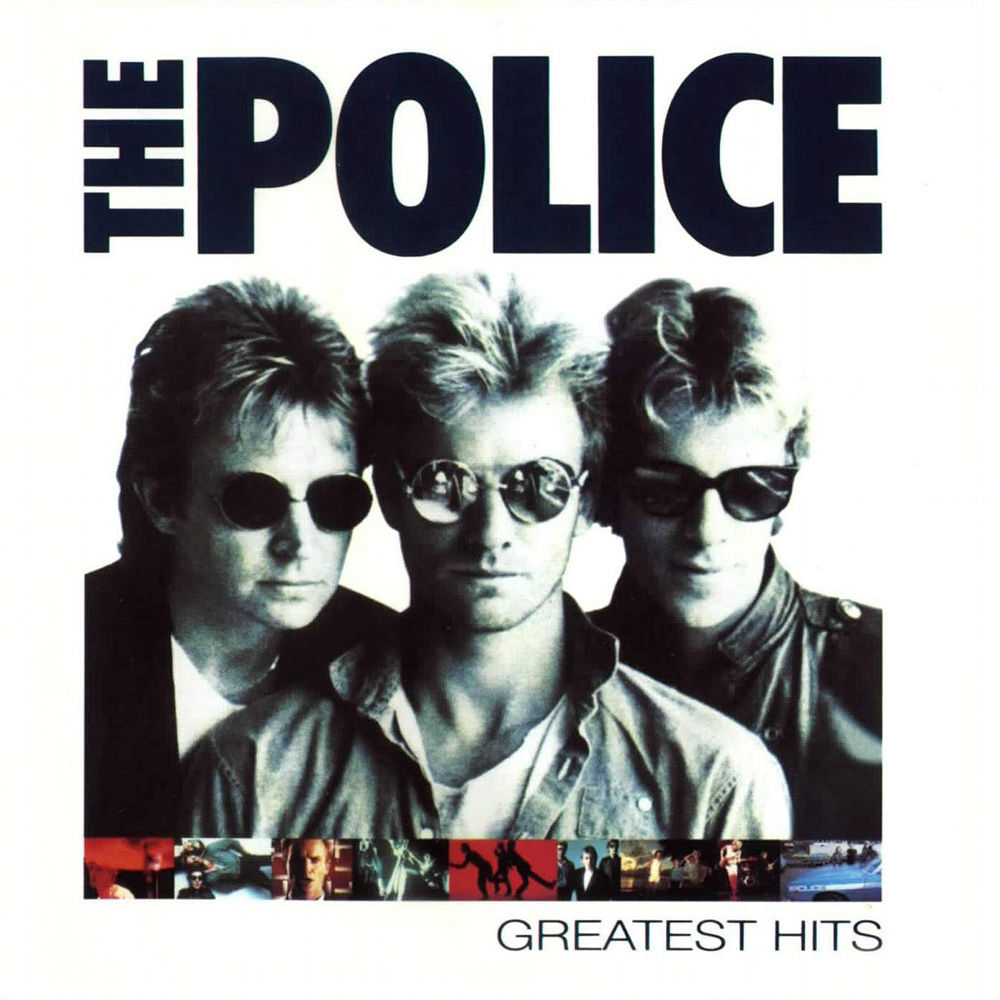
1992, 9.5/10
The Police’s albums are all a little inconsistent, and this compilation does a great job of putting 16 of their best songs in one place. It preserves the terrific second half of Synchronicity, in the same sequence. If I was in charge of the track-list, I’d sub in ‘It’s Alright For You’ for ‘The Bed’s Too Big Without You’ and ‘Omegaman’ for ‘Spirits in the Material World’ – this switch would have the benefit of including compositions from Summers and Copeland.
But despite my quibbles, Greatest Hits is a great shortcut to an inconsistent, but prodigiously talented, trio.
Flexible Strategies
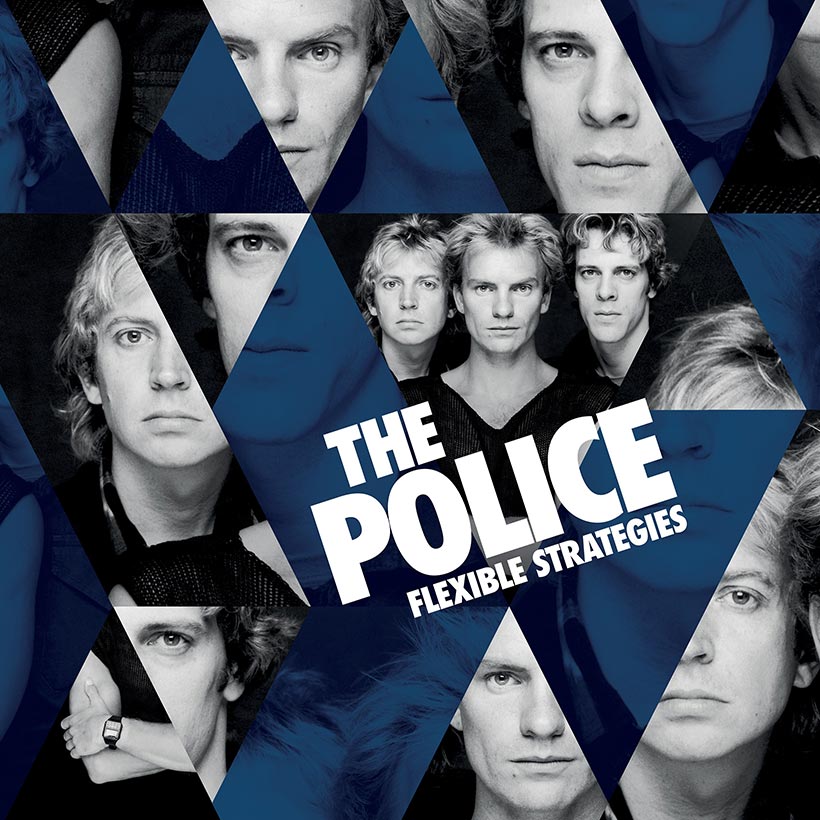
2018, not yet rated
This collection of b-sides was released with The Police’s 2018 box-set, and is available on Spotify. I’m still forming an opinion, but frustratingly it doesn’t include the early Copeland-penned single ‘Fallout’ or the Zenyatta Mondatta outtake ‘I Burn For You’.
Ten Best Songs by The Police
Message in a Bottle
King of Pain
So Lonely
Invisible Sun
Synchronicity II
Walking on the Moon
Every Breath You Take
Roxanne
Omegaman
It’s Alright For You
Back to Punk and New Wave Reviews…
Related Pages
About
Aphoristic Album Reviews is almost entirely written by one person. It features album reviews and blog posts across a growing spectrum of popular music.
Review Pages
Read about the discographies of musical acts from the 1960s to the present day. Browse this site's review archives or enjoy these random selections:
Blog Posts
I add new blog posts to this website every week. Browse the archives or enjoy these random selections:
